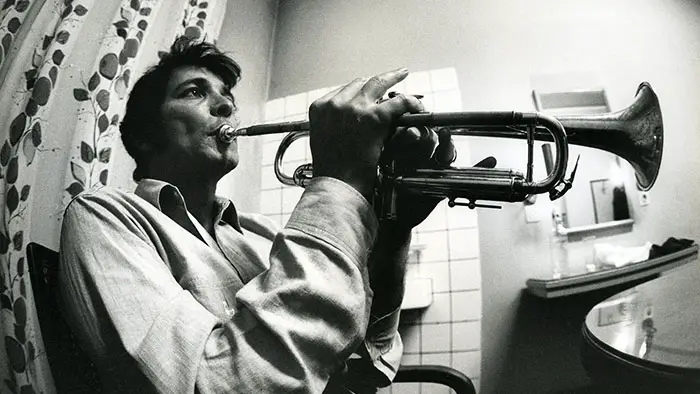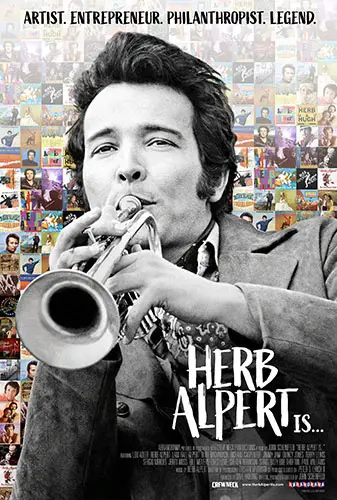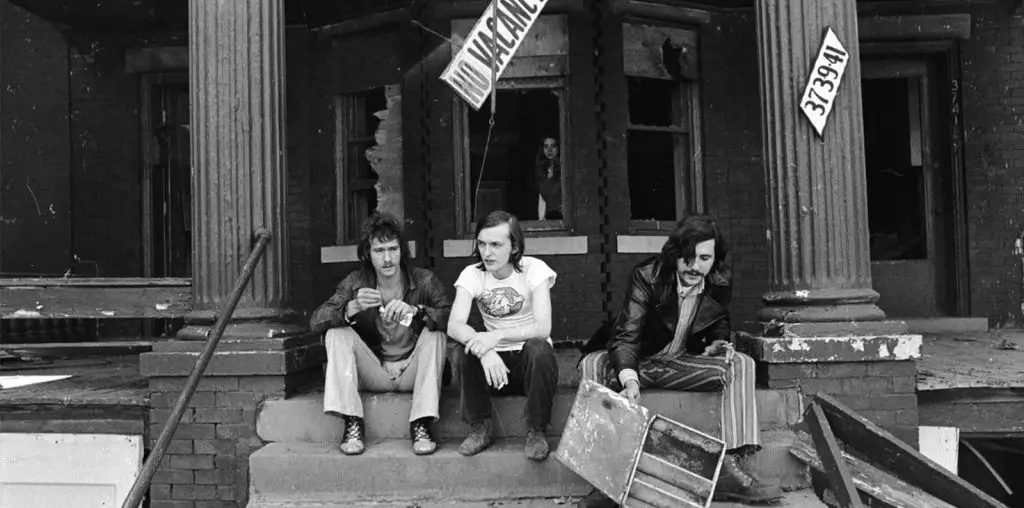
For those immersed in music history, the 1960s represent a decade rich in musical exploration, recording techniques, and diverse styles. The foundations of rock ‘n’ roll had been laid in the 1950s, marking every music style that would emerge within the pop paradigm before everything became codified and regimented by the major labels in the ’70s. It wasn’t unusual in the ’60s to hear completely different music styles follow each other on the radio. Amid this rich sonic palette, jazz trumpeter Herb Alpert rose to become an icon, artist, and philanthropist. Director John Scheinfeld tells the musician’s story in Herb Alpert Is….
We first meet Alpert at home as an artist painting and sculpting, an unexpected introduction for the man known for his trumpet-driven instrumentals. From there, Scheinfeld takes us on a journey through the musician’s life, from his youth in Los Angeles, being drafted in the ’50s, and on to his rise as one of the most popular musicians of the decade with his group, The Tijuana Brass. We learn the stories, motivations, and thought processes behind his biggest hits. Eventually, he teamed up with Jerry Moss and formed A&M Records, releasing albums by the likes of Joe Cocker, The Police, and Janet Jackson. He had it all, but he wasn’t happy, and it took a complete reassessment of his life to finally find inner peace.

“…a journey through the musician’s life…”
As a subject, Alpert comes across exactly like his public persona: gentle, soft-spoken, and humble. If he has any ego at all, he doesn’t reveal it. He speaks with candor about his life, honesty being his default setting. No matter how shy and quiet his personality, he lets us in as a gracious host, even in the darkest parts of his life. On his end, Scheinfeld does an excellent job putting the pieces together to present this multi-dimensional character whose rise from a relative low-point solidified his status as one of America’s most important and influential musicians, whether the kids have heard of him or not.
There are a couple of issues, though. There’s recurring mention of a difficult time in Alpert’s past when he literally could not even play his trumpet. While there are references to his failed first marriage, we never fully understand what drove him into this depression. It’s unlikely that it was drugs because Alpert seems to have never indulged in his life, so what was it? There’s also the uncomfortable aspect of The Tijuana Brass’ cultural appropriation. As happened so often during that era, a group of white guys repackaged Mexican music to America and made a lot of money doing it. While it’s certain Alpert’s intentions were far from nefarious, it would have been nice to hear him acknowledge this part of his history.
As time moves forward, we all age, and our elders only get older. It’s so important that we listen to them and truly hear what they have to say so we can learn something about ourselves. John Scheinfeld has done just that with Herb Alpert Is… as Alpert is one of our most cherished elders.

"…Scheinfeld does an excellent job putting the pieces together to present this multi-dimensional character..."



Awesome! I want to see this doc.